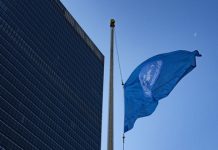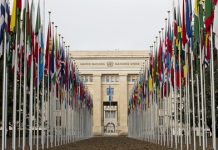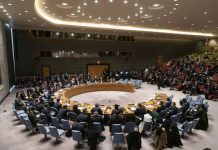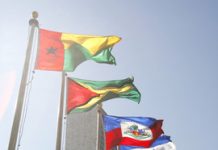In Gaza, a dire warning over stalled medical evacuations
Children are dying while waiting for lifesaving evacuations in Gaza, according to the UN Children’s Fund, UNICEF, on Friday. Less than ONE child per day is being allowed to leave for urgent medical care.
UNICEF Spokesperson James Elder said the problem was not due to logistics or numbers – as youngsters can be safely evacuated and the agency has got many children out in previous months.
He said the devastating reality was that around 2,500 children need urgent medical care for conditions including head trauma, amputations, burns, cancer, and severe malnutrition.
At the current rate, it would take seven years to evacuate them all, Mr. Elder added.
Among those waiting is 12-year-old Mazyona. After losing her siblings to rocket strikes, she now needs specialised care for devastating facial injuries, he said.
Meanwhile, independent UN human rights experts are raising another critical concern. Nearly 100,000 injured Palestinians face long term disabilities, with women and girls at higher risk.
The experts stress the rehabilitation services and psychological support are in short supply.
They are calling for immediate compliance with the advisory opinion of the International Court of Justice, concerning Israel’s military offensive in July, to prevent further loss of life.
Sudan: Humanitarian crisis continues to spiral
A stark warning came from top UN officials on Friday over the humanitarian crisis in Sudan, where over 11 million people have been forced to flee their homes.
UN humanitarians report that fourteen regions are now on the brink of famine, with Zamzam camp in North Darfur already experiencing famine conditions.
UNICEF Deputy director Ted Chaiban said, “an estimated 13 million people are facing acute levels of food insecurity.”
Of particular concern are 3.7 million children under-five who face severe acute malnutrition. These children are 11 times more likely to die from preventable diseases than their healthier peers in Sudan.
The officials highlight that security challenges are hampering aid delivery. Women are children face grave violations of their rights including sexual violence.
They stress that: “Humanitarian assistance, alone cannot resolve this crisis, the people of Sudan need our collective action now”.
Peacekeepers in south Lebanon face more attacks
Turning to South Lebanon, UN peacekeepers from the UNFIL mission are staying at their posts, despite multiple attacks and escalating violence in recent days.
UNIFIL reports clashes across twelve different locations, amid ongoing rocket fire from Lebanon and Israeli air strikes.
On October 23, two medical evacuation teams from the mission came under fire transferring a patient while a UNIFIL medical facility in Beit Leif was struck by a missile or rocket.
There were two other impacts recorded near peacekeepers’ living quarters.
While UN “blue helmets” have escaped injury during the latest incidents, UNFIL emphasises that all combatant have an obligation to avoid putting either civilians or peacekeepers in danger.
UNIFIL remains committed to its mandate from the Security Council and is calling on all actors to resolve their differences around the negotiating table – not through violence.
Sarah Daly, UN News.
Source of original article: United Nations (news.un.org). Photo credit: UN. The content of this article does not necessarily reflect the views or opinion of Global Diaspora News (www.globaldiasporanews.com).
To submit your press release: (https://www.globaldiasporanews.com/pr).
To advertise on Global Diaspora News: (www.globaldiasporanews.com/ads).
Sign up to Global Diaspora News newsletter (https://www.globaldiasporanews.com/newsletter/) to start receiving updates and opportunities directly in your email inbox for free.





























